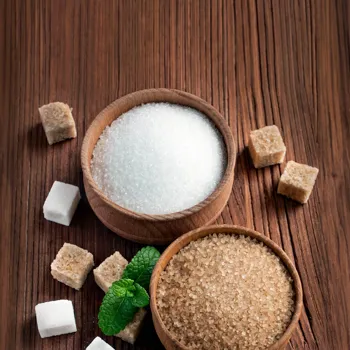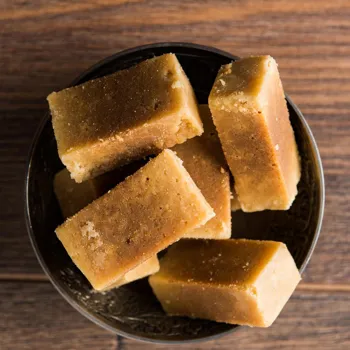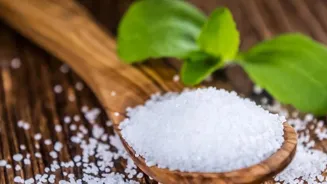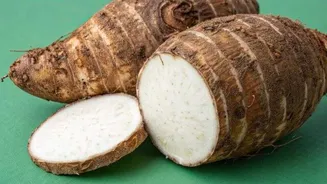Unveiling the Sweet Truth: How Sugar Impacts Your Health, Indian Style. Dive into the world of sugar's effects!
Namaste, readers! In India, we love our mithai and sugary chai. But too much of a good thing
can be bad, right? This article is about understanding sugar, how it affects your body, and how to balance sweetness with good health, keeping in mind our Indian context.
We will explore the different types of sugar, its effect on the body, ways to reduce sugar intake and some commonly asked questions. We aim to provide simple, straight forward information, especially catered to an Indian audience.
This will help you to make informed choices about adding sugar to your daily diet. So, let's begin this journey together!
Various sugar types: sucrose, fructose, glucose, lactose, syrups, jaggery, and khandsari; monitor intake
Sugar isn't just that white stuff you add to your tea. It comes in many forms. First, there's sucrose, the common table sugar, from sugarcane or sugar beets. Then there's fructose, found naturally in fruits and honey. Glucose is another type, our body's primary energy source.

Lactose is the sugar in milk. Finally, there are syrups like high-fructose corn syrup, often used in processed foods and drinks. In India, we also have jaggery (gur), a traditional unrefined sugar, and khandsari, which is an unrefined sugar.
While some might think jaggery is healthier, they all still affect your blood sugar levels. It is vital to keep a track of what you're consuming and in what quantities.
Eating too much sugar can lead to health issues, including diabetes and heart disease
When you eat something sweet, your body breaks down the sugar into glucose. This glucose enters your bloodstream, raising your blood sugar levels. Your pancreas then releases insulin, a hormone that helps glucose enter your cells to be used for energy.

When you eat too much sugar, especially refined sugar, this process is repeated over and over again. And, this can overwhelm your system. Over time, this can lead to insulin resistance, where your cells don't respond to insulin as well, leading to higher blood sugar levels.
This can increase your risk of type 2 diabetes, a growing concern in India. High sugar intake also affects other parts of your body. It can contribute to weight gain, as excess glucose is stored as fat. It can also increase your risk of heart disease and non-alcoholic fatty liver disease.
And yes, sugar can also harm your teeth, leading to cavities.
Be mindful of hidden sugars in processed foods, choose natural sweeteners like fruits
Being aware of your sugar intake is half the battle. Start by reading food labels carefully. Look beyond just "sugar" and watch out for ingredients like corn syrup, dextrose, fructose, and maltose.

Processed foods are often loaded with hidden sugars, even the ones you might not expect, like sauces, dressings, and even some breads. Beverages are big culprits. Sodas, juices, sweetened teas, and flavored milk drinks can add up to a lot of sugar without filling you up. Cook at home more often.
When you cook at home, you control the ingredients and can reduce the amount of sugar you use. In your Indian meals, be mindful of the amount of sugar you add to your chai, lassi, and mithai. Think about reducing the added sugar in these items gradually. Look for naturally sweet alternatives.
You can use fruits like dates, figs, or raisins to sweeten your dishes.
Reduce sugar intake with small changes for healthier diet
Making small changes can make a big difference. Start by reducing your intake of sugary drinks. Swap soda for water, juice for a piece of fruit, and sweetened tea for herbal tea. Instead of adding sugar to your breakfast cereal, try topping it with fresh fruits like berries or bananas.
Choose whole, unprocessed foods over packaged snacks. Fruits, vegetables, nuts, and seeds are all naturally sweet and satisfying. Read labels carefully and choose products with lower sugar content. When baking, try reducing the amount of sugar called for in the recipe by one-third.
You can also replace some of the sugar with applesauce or mashed bananas. Be patient with yourself. It takes time to adjust to a lower-sugar diet. Start with small changes and gradually work your way up.
Moderation in sugar consumption is key for a healthy lifestyle
Completely cutting out sugar may not be realistic or sustainable for everyone, especially in a culture where sweets are a part of celebrations and traditions. The key is moderation. Enjoying mithai occasionally is perfectly fine. The problem arises when sugar becomes a daily habit.
Focus on eating whole, unprocessed foods most of the time. This will naturally reduce your sugar intake and provide you with essential nutrients. Listen to your body. Pay attention to how you feel after eating sugary foods. Do you feel energized or sluggish?
Use this information to guide your food choices. Don't deprive yourself. If you're craving something sweet, have a small portion of a healthy treat, like a piece of fruit or a square of dark chocolate. Consider consulting a dietitian or nutritionist.
They can help you develop a personalized plan for reducing your sugar intake and improving your overall health.
Jaggery vs. white sugar: Similar impact on blood sugar, use in moderation
Is jaggery healthier than white sugar? Jaggery contains some minerals, but its impact on blood sugar is similar to white sugar. Use it in moderation.

Artificial sweeteners may reduce calories but have health risks
Can I replace sugar with artificial sweeteners? Artificial sweeteners can help reduce calorie intake, but some studies suggest they may have other health effects. It's best to use them sparingly and consult with your doctor.
Limit added sugars to 10% of daily calories
How much sugar is too much? The World Health Organization recommends limiting added sugars to less than 10% of your total daily calories. For most adults, this is about 50 grams (12 teaspoons) per day.

Cutting sugar helps manage diabetes, not cure it; consult doctor for treatment plan
Will cutting out sugar completely cure my diabetes? Cutting out sugar can help manage diabetes, but is not a cure. Work closely with your doctor to develop a comprehensive treatment plan.
Fruits contain natural sugars but offer health benefits
Are fruits okay? They contain sugar, right? Yes. Fruits contain natural sugars, but they also provide fiber, vitamins, and antioxidants. That are beneficial to the body. Enjoy fruits as part of a balanced diet!
Remember, moderation and awareness are your best friends in this journey towards a healthier, balanced relationship with sugar. Stay informed, stay healthy, and enjoy the sweetness of life in a mindful way!














